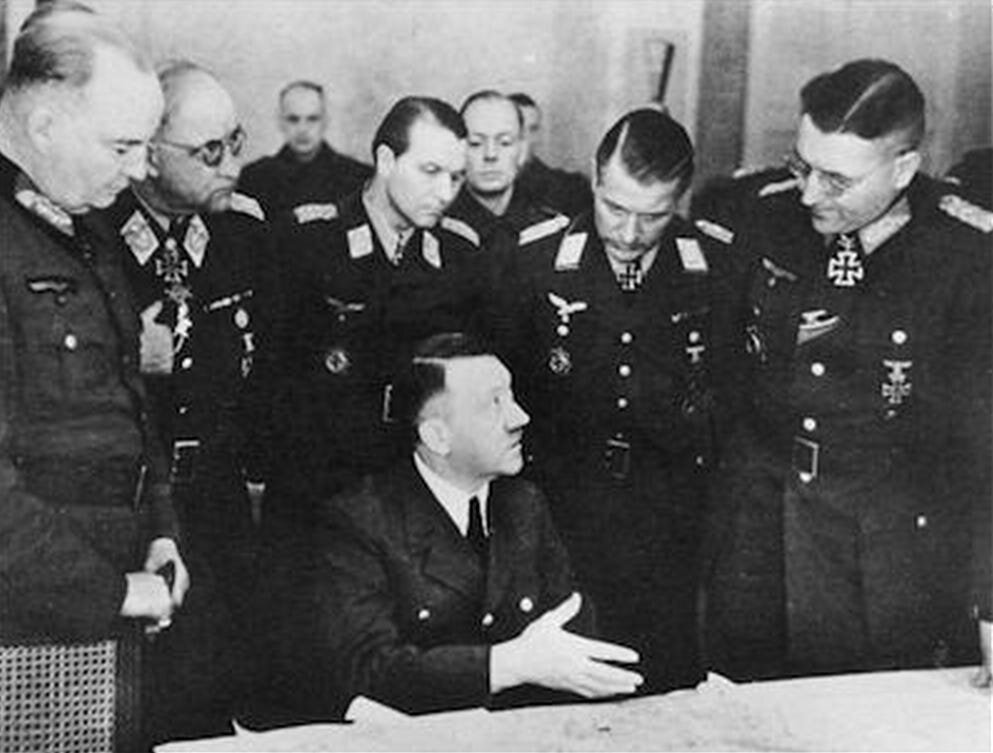This article offers a re-balanced definition of strategy that uses classical metaphysics to ground the term in an implementable framework. In leaving the methods for generating prudent ideas for strategy open, the Department of Defense definition has perhaps invited an over-reliance on postmodern ideology that neglects objective concepts and objective reasoning. Postmodern thought emphasizes subjectivity in creating conditions for creativity to flourish. Classical metaphysics, on the other hand, emphasizes objective truths about mankind and reality. In suggesting appropriate boundaries using classical metaphysics, the proposed definition preserves the creative flexibility demanded in the emerging operational environment and championed by postmodern thought that rightly—if perhaps inordinately—impacts the current discussion on military strategy.
Writing Strategy 2020
Earlier this year, The Strategy Bridge asked university and professional military education students to participate in our fourth annual student writing contest on the subject of strategy. The response was amazing. Now, we are pleased to announce the winners! We'll publish their essays, as well as some of the other submissions deserving an honorable mention, in a series in the very near future. We appreciate all the great submissions from the contest participants!
Beijing’s Strategic Ends: Harmony through Hierarchy and the End of Choice
The Map is Never Neutral
Besieging Wei to Rescue Zhao: Combining the Indirect Approach with the Centre of Gravity
Incorporating the centre of gravity with the indirect approach makes one’s actions more potent, providing an effective focal point that if successfully hit promises high yields for minimal costs. While like any other stratagem it will not always be possible to find the opportunity for both to be applied in conjunction with each other, perhaps because one lacks the options for manoeuvre or the centre of gravity is too well guarded, the yield is exponentially increased when a convergence exists.
In Defense of A Strategy of Not-Losing
Strategy is about making a whole series of choices about one’s goals, priorities, resources, and risk tolerance. Strategy involves choices that respond to others’ actions and to changes in the environment. Sometimes all of the available choices will be less than optimal. Almost never is there a single perfect solution to a given problem—strategic choices require tradeoffs. Overwhelmingly, though, strategic aims and choices are framed in terms of winning and losing; this tendency, however, reflects poor strategic thinking and leads to false choices about what can and should and must be done. The language of strategy requires more options, more nuance, and better metaphors.
Sun Tzu’s Fighting Words
These twin issues of ambiguous translation and lack of historical context combine to create an environment ripe for distortion. Nowhere is this problem more prevalent than in our amorphous belief that Sun Tzu emphasized non-violent competition through the iconic goal of winning without fighting. A close examination of the actual terminology used in The Art of War, coupled with an examination of the historical record supporting the text’s meaning, suggests that while engaging in pitched battles was certainly discouraged, killing the enemy in combat was far from a disfavored practice.
#Reviewing The Dragons and the Snakes
Kilcullen’s book is of value, especially for readers who are new to today’s complex battlefield. His use of Snakes and Dragons as a heuristic model is pithy, and his exploration of the evolution of insurgent and terrorist groups is fascinating. David Kilcullen is an erudite, multi-disciplinary scholar with astute observations. Nevertheless, Dragons and Snakes is not on the same level as his earlier books.
It Was Grand, But Was it Strategy? Revisiting the Origins Story of Grand Strategy
We do need to accept that grand strategy has no definitive or stable meaning, and that the term does not describe activities which are defined by similarity of equivalence. Understandings of strategy were given coherence through their connection to the enduring nature of war. Grand strategy has no such anchor. Thus, the terminology of grand strategy is a relatively recent, Anglophone attempt to describe and explain the evolution of a much more long-term and varied set of activities, traditionally located in the realm of policy or statecraft. As such, to account for the myriad differences and changes that have characterised how polities have pursued security across time, we must move towards a more flexible approach.
The Importance of the Strategic Level: Germany in the Second World War
When looking at the different German levels of war, what mostly doomed Germany is its ideology-inspired, apocalyptic, and unrealistic strategy. The Third Reich’s flawed strategy led it to declare war on both the Soviet Union and the United States; fail to recognize that its operational ways were not necessarily appropriate to obtain its strategic ends; stubbornly refuse to capitulate when defeat was most likely; and prefer total destruction over limited defeat.
Strategy Verbs Theory: A Dysfunctional Relationship
Theory comes first. It informs strategy, and strategies derive from theory through deduction. As more strategies are developed, induction can lead to new theory in an iterative loop. When strategic thinkers conflate strategy with theory or give it precedence over theory, the relationship becomes dysfunctional.
Who was Sun Tzu’s Napoleon?
We know that Thucydides was not only the chronicler, but a general in the Peloponnesian War, Julius Caesar the architect of the Gallic War, and Machiavelli an active participant in Florentine diplomatic and martial affairs. Maurice de Saxe waded through the bloody fields of Malplaquet and Fontenoy, while both Jomini and Clausewitz kept their own formative experiences fighting in the Napoleonic Wars firmly in mind as they composed their respective theoretical works. But what motivated Sun Tzu (or its anonymous authors) to compose The Art of War? What were its historical precedents?
#Reviewing Winning Westeros
Winning Westeros is fun for Game of Thrones fans but mixed with regard to its substance. Mostly, though, the book is a testament to the story-telling gifts of George R.R. Martin, who managed to write a series of fantasy novels about dragons and zombies that enthralled a large number of serious people.
Grand Strategy in the Age of Climate Change: A Theory of Emergent Grand Strategy
Given grand strategy’s concern with advancing overall interests, typically in the context of a significant threat, there is a pressing need for articulating a new sensibility about grand strategy that deals seriously with the climate threat. In particular, as I show in this essay, this new sensibility must account for the possibility of new actors having the capacity as well as the interest to act in a grand strategic fashion and to do so in a way that challenges the conventional wisdom about the centralized, coordinated nature of grand strategic action.
Small State Strategic Thinking: The Case of the Netherlands
The broadsides on America’s strategy in Iraq and Afghanistan are persistent given the indubitable lack of progress in both theatres for almost two decades. As both wars continue, not only are global powers like the United States still involved, but many small states remain engaged. Each keeps contributing to, and participating in, these ongoing conflicts. While the criticism of the American strategic effort is sweeping, and may be considered justified, this critique spills over as collateral to the small allied states who continue to contribute to both the Iraq and Afghanistan wars.
Political Interference, Strategic Incoherence, and Johnson’s Escalation in Vietnam
The American experience in Vietnam defined a generation, spurring civil unrest and the degradation of trust in important political and military institutions. Spanning the course of two decades, the United States’ engagement in the conflict reflected the heightened global tension of the Cold War. American involvement in Vietnam began as early as 1950, initially in the form of assistance to the French during the First Indochina War. By the end of the Kennedy administration, the United States had begun to send American advisers and military forces to Vietnam, aiming to prevent the spread of communism to Southeast Asia.
Writing Strategy 2019
Between Strategic Autonomy and Limited Power: The French Paradox
Dissecting Strategic Decision Making: #Reviewing Leap of Faith
In theory, policy, and strategy are the product of extensive analysis, detailed cost-benefit calculations, and rational criteria for decision-making. In practice, good strategy development is also about compromise and consensus building, resolving problems, mitigating uncertainty and constraints, and steering downstream through the fluid dynamics of international and domestic politics.




















